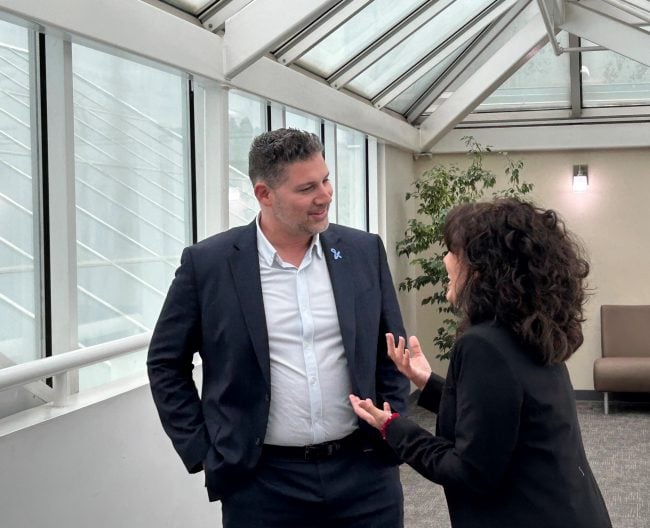The standardization group IANA (or the Internet Assigned NumbersAuthority), which collaborates with IETF (also known as theInternet Engineering Task Force), had long ago already prepared thenew standard, IPv6, which goes from the 32 bits of IPv4 to 128bits.
|If you want to know how many addresses that is, don't try usingyour calculator; it may go up in smoke! Why, you ask? Well, thatnumber is 2 to the power of 128 OR 3.4 x 10 to the power of 38 OR,get this, 340 undecillions (or sextillions). To understand itsmagnitude, let's just say there aren't enough stars in the universeto total that number!
|Consequently, we hope, there'll be enough IP addresses to goaround for the next few decades; every device will have its own IPaddress, and we won't run the risk of depleting the IP address bankany time soon – certainly not within my lifetime.
|We'll also no longer have need of private IP addresses; a pointwhich certain pundits believe is a positive thing. I could write awhole new blog post on this subject but for now, suffice to say Idisagree. I don't think you should have a different mailing addressfor every room in your house – that, in my view, is informationregurgitation, which, in a world like the Internet, can bepotentially so incredibly dangerous for your computers.
|This year, the IPv4 address space has been officially declaredexhausted – there aren't any more IPv4 IP addresses to be assignedfrom IANA to the five regional internet registries, or RIRs. As acustomer, you may be able to get an IPv4 for some time, for as longas your ISPs still have them, that is.
|Think of them like phone numbers in that you may get a recycledone; an IP previously belonging to another company that no longerneeds/wants it. So hold off on pressing the panic button for nowbecause IPv4 IPs will still be around for a little longer but beprepared to face reality, because soon enough, they'll be gone forgood and IPv6 will be the order of the day.
|Those of us who already have IPv4 IPs will be able to keep andcontinue using them. In the interim, though, ISPs will beginto also assign IPv6 IP addresses and slowly but surely startmigrating everyone to this new address space.
|This will happen simply because they can't afford to maintainthe double standard for too long – it's expensive; requires doubleequipments; and creates too many complications (for which we'lleventually end up paying and in real dollars).
|Truth be told, I don't know how long this process will take; forall we know, it might spread across decades. We just know, withutter certainty that it will happen. We also know for afact that your equipment must be able to deal with both protocolsconcurrently but here's the kicker – they are completelyincompatible.
|If your equipment is not designed to handle IPv6, it simplywon't understand it, period!
|Pierluigi Stella is chief technology officer atNetwork Box USA in Houston, Texas.
|Complete your profile to continue reading and get FREE access to CUTimes.com, part of your ALM digital membership.
Your access to unlimited CUTimes.com content isn’t changing.
Once you are an ALM digital member, you’ll receive:
- Critical CUTimes.com information including comprehensive product and service provider listings via the Marketplace Directory, CU Careers, resources from industry leaders, webcasts, and breaking news, analysis and more with our informative Newsletters.
- Exclusive discounts on ALM and CU Times events.
- Access to other award-winning ALM websites including Law.com and GlobeSt.com.
Already have an account? Sign In
© 2024 ALM Global, LLC, All Rights Reserved. Request academic re-use from www.copyright.com. All other uses, submit a request to [email protected]. For more information visit Asset & Logo Licensing.









